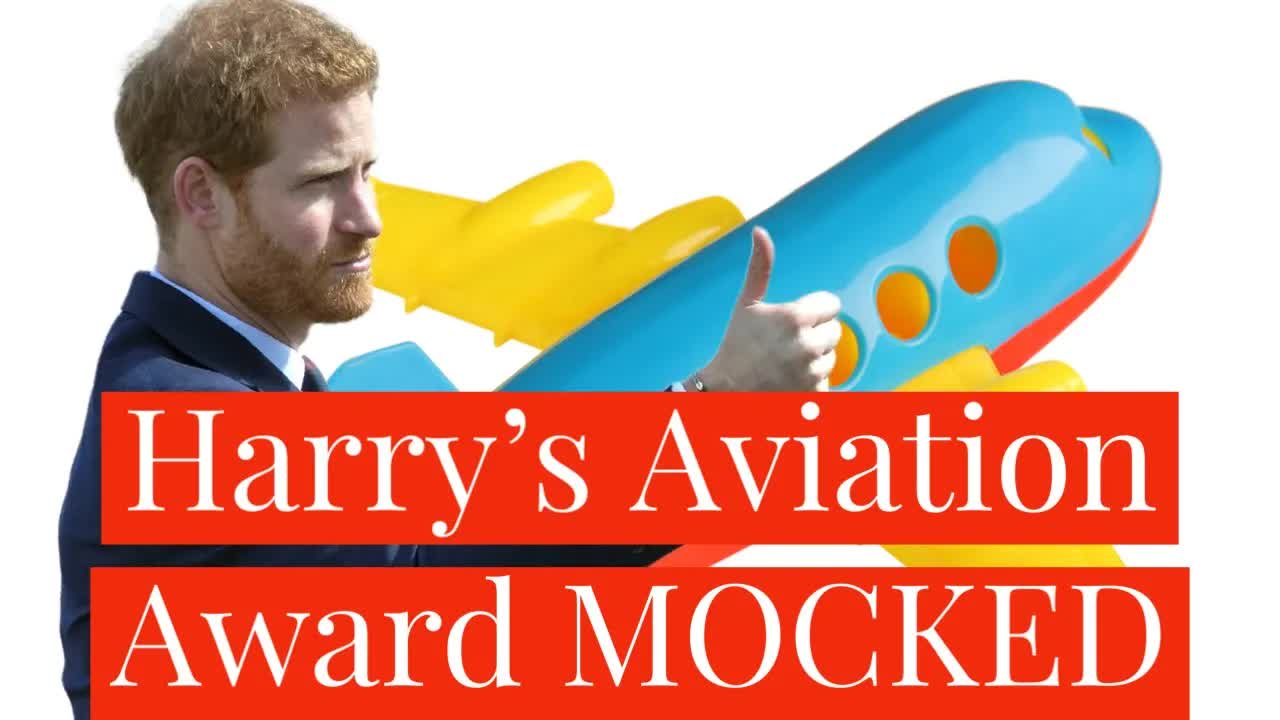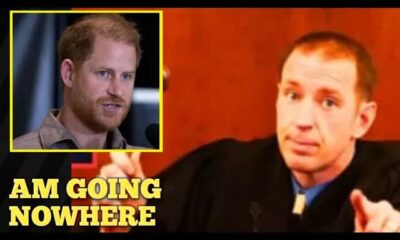The News
Prince Harry’s Upcoming Award: A Controversial Honor or a Publicity Stunt?
Next week, Prince Harry is set to accept the Living Legend of Aviation Award, a move that has sparked considerable debate and criticism.
Many are questioning the legitimacy of this accolade, given that there is little evidence to support Harry's qualifications as an aviator.
In fact, the prince has not flown a helicopter or plane solo in over a decade, raising eyebrows about why he is being honored in the first place.
Critics argue that this decision reflects poorly on both Harry and the organization bestowing the award.
With no clear record of his flying experience since leaving military service, many are left wondering what criteria were used to select him for this recognition.
The consensus seems to be that the award is more about celebrity than actual achievement in aviation.
The parallels drawn between Harry's situation and that of his wife, Meghan Markle, are hard to ignore.
Meghan has faced similar scrutiny regarding her rise to prominence, often attributed to her significant financial investments in public relations.
Some believe Harry is now following in her footsteps, utilizing PR strategies to bolster his public image rather than relying on genuine accomplishments.
This trend of purchasing accolades appears to be a growing concern.
By accepting this award, Harry risks undermining the achievements of those who have truly made significant contributions to aviation.
The honor, which should celebrate remarkable figures in the field, instead feels diminished when associated with someone whose qualifications are questionable at best.
In light of these criticisms, it might be prudent for Harry to reconsider his acceptance of the award.
Nominating a more deserving candidate could restore some integrity to the event and prevent further embarrassment for both himself and the awarding organization.
After all, the implications of this choice extend beyond just one individual; they reflect on the entire community of aviation professionals.
The organization behind the award, Kitty Hawk Air Academy, is dedicated to inspiring young people about aviation.
Their mission includes interacting with children at schools and camps, fostering a love for flight.
However, by inviting Harry, they risk alienating those who genuinely care about the field.
Critics argue that associating with a figure like Harry, who lacks substantial credentials, could diminish their credibility.
Historical figures recognized by this award include astronauts, innovators, and industry leaders—people who have made real strides in aviation.
Names like Elon Musk and Sir Richard Branson come to mind.
These individuals embody the spirit of innovation and achievement that the Living Legends of Aviation Award is meant to celebrate.
In stark contrast, Harry's credentials appear to fall short of such lofty standards.
Furthermore, the event's choice of presenter, John Travolta—a seasoned pilot with multiple aircraft under his belt—highlights the disparity between Harry and those who have genuinely excelled in aviation.
The juxtaposition is striking, leading many to question whether this is a serious recognition or merely a publicity stunt designed to attract attention.
As social media buzzes with reactions, many are voicing their discontent.
The general sentiment is that Harry's acceptance of this award trivializes the hard work and dedication of true aviation legends.
In a world where merit and achievement should be celebrated, this situation feels like a participation trophy rather than a legitimate honor.
This controversy echoes broader themes regarding the influence of celebrity culture on genuine achievement.
It raises questions about how we define success and recognition in society today.
Are awards becoming mere commodities to be traded for publicity rather than meaningful acknowledgments of hard-earned accomplishments?
In the end, Prince Harry's decision to accept this award may reflect a larger trend within the royal family and celebrity culture at large.
As public figures navigate their identities in the spotlight, the line between genuine achievement and manufactured acclaim continues to blur.
Whether this award will serve as a stepping stone for Harry or become a cautionary tale remains to be seen.
As the event approaches, all eyes will be on Harry, the award, and the implications of this controversial decision.
The outcome could very well influence how future awards are perceived and awarded in the ever-evolving landscape of fame and recognition.




































































